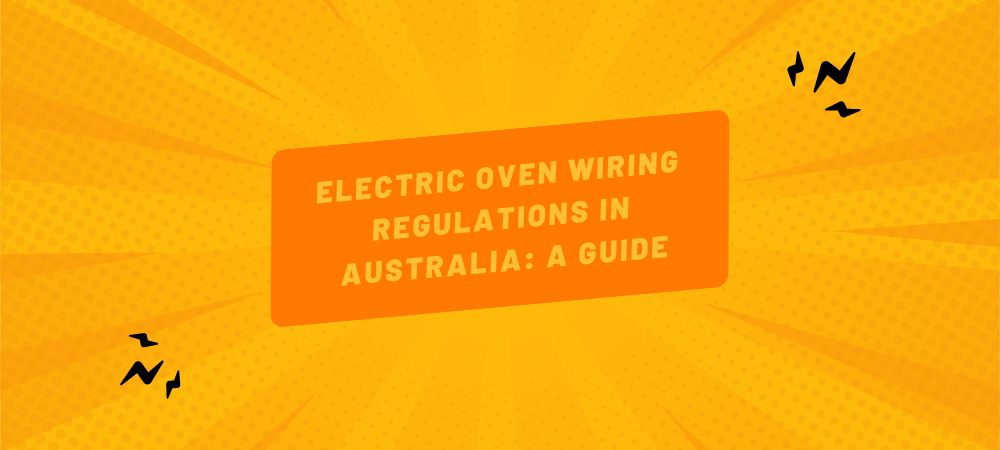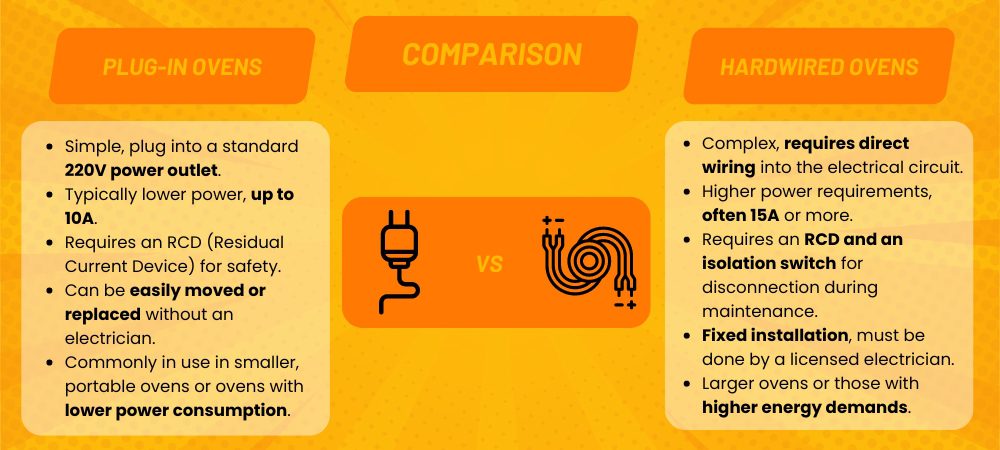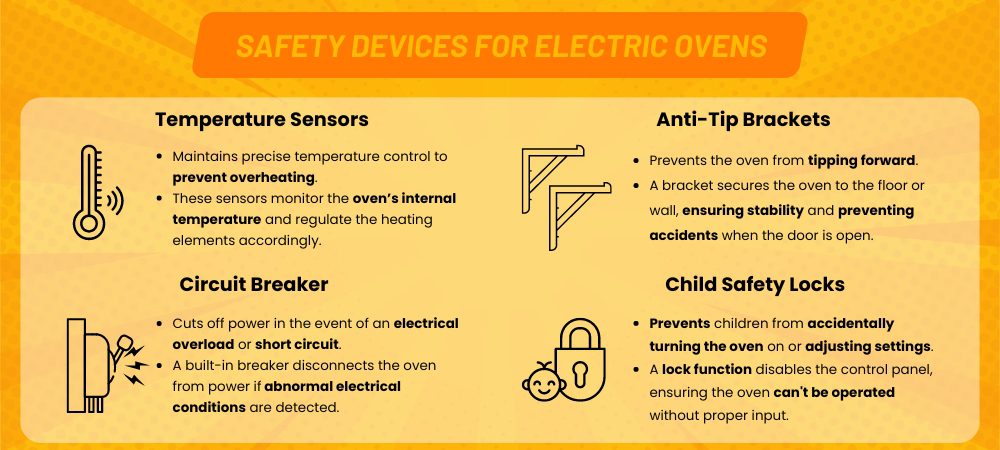Electric oven wiring regulations in Australia: A guide

Planning on buying or installing an electric oven in your home or commercial kitchen? Chances are you’ll need the services of a professional electrician to get it up and running safely (and properly!).
Unlike general kitchen appliances, electric ovens come with wiring and electrical requirements that must be met – not only to ensure that they work properly, but also to reduce the likelihood of potential electrical issues that often arise from improper installation.
Whether you’re considering an upgrade to your current electric oven or have already purchased a new model, it’s important to understand the specific electric oven wiring regulations that apply in Australia before proceeding with installation.
Australian standards for electric oven wiring and installation
In Australia, the wiring regulations for electric oven installation are covered under the AS/NZS 3000:2018 standard, which has been put in place since 1st January 2019 as a compulsory requirement for all electric oven installations in Australia, both residential and commercial.
Also referred to as the Australian/New Zealand Wiring Rules, the AS/NZS 3000:2018 provides clear standards regarding the minimum regulatory requirements for the safe installation of electrical appliances, including electric ovens.
A certificate of compliance for electrical work (CCEW) must also be issued after completion of the electric oven installation. This certificate must be submitted to the energy provider of the home or commercial space as well as the relevant governmental authority. For installations in NSW, this document will be provided to the Department of Fair Trading as proof of the installation having been performed by a licenced electrician.

Wiring requirements for different types of electric ovens
The specific wiring rules for electric ovens covered by the AS/NZS 3000:2018 make provisions for different types of electric ovens, from plug-ins to hardwired models. Here are some of the key wiring requirements for electric oven installation:
220-volt power point outlet
Plug-in electric ovens can be powered by a power point connection, making operation much more straightforward. However, electric ovens usually have higher power requirements than regular appliances.
The power point outlet the electric oven will be connected to must be capable of an output of 220-volt instead of the standard 120-volt sockets found in most buildings. Electrical work will be necessary to carry out the powerpoint upgrade to 220 V capacity in order to support the operation of an electric oven.
Hardwiring
Built-in electric oven models that have a power rating of 3KW and above must be hardwired into the property’s electrical system as part of the installation process. Hardwiring involves connecting the wiring of the electric oven to the power supply of the building via a dedicated circuit to provide it with a stable and isolated supply of electricity during operation.
Safety switches and RCD
Electric ovens require high amounts of electricity, which means that the appliance will draw a lot of power from the electrical supply when in use. For safety reasons, the electric oven will need to be connected to a safety switch or a residual-current device (RCD) that can cut off power to the electric oven in the event of a power surge.
Safety switches are located on the building’s main switchboard and must be connected to the electric oven wiring as a protective measure to prevent electric shocks, overload, or even electrical fire.
In addition to these safety switches, an isolation switch must also be installed along with the electric oven to allow electricians to cut off power to the appliance in the event of repairs or maintenance work.

Can you install an electric oven by yourself?
No. Electric oven installation is not at all suitable for a DIY job — doing so is not only extremely dangerous, but can also result in penalties of up to $500,000.
The electrical work required to meet the AS/NZS 3000:2018 standard for electric ovens can only be completed by a licenced electrician who has the technical knowledge and expertise to carry out the work.
If you have an electric oven that needs installing, you should always rely on an electrician to protect yourself, your loved ones, and property.
When should you engage an electrician to install an electric oven?
Hire an electrician as soon as you have confirmation of a new electric oven that requires installation. The sooner you engage an electrician, the earlier they will be able to assess the extent of wiring and electrical work that will need to be carried out as part of the installation process.
Depending on your location, electricians may be in high demand and will need to be booked in advance to ensure that your electric oven can be installed upon delivery. Be sure to provide the electrician with the model and type of electric oven — this will enable an accurate quote for the work that needs to be completed.
Radiance Electrical is the leading electrician in Sydney and the Lower North Shore, providing reliable services for the installation of electric ovens and other appliances according to the electric oven wiring regulations in Australia. Get in touch with us today to get a free quote for our electric oven installation services.
Fill out form or contact us directly

Contact Form
"*" indicates required fields